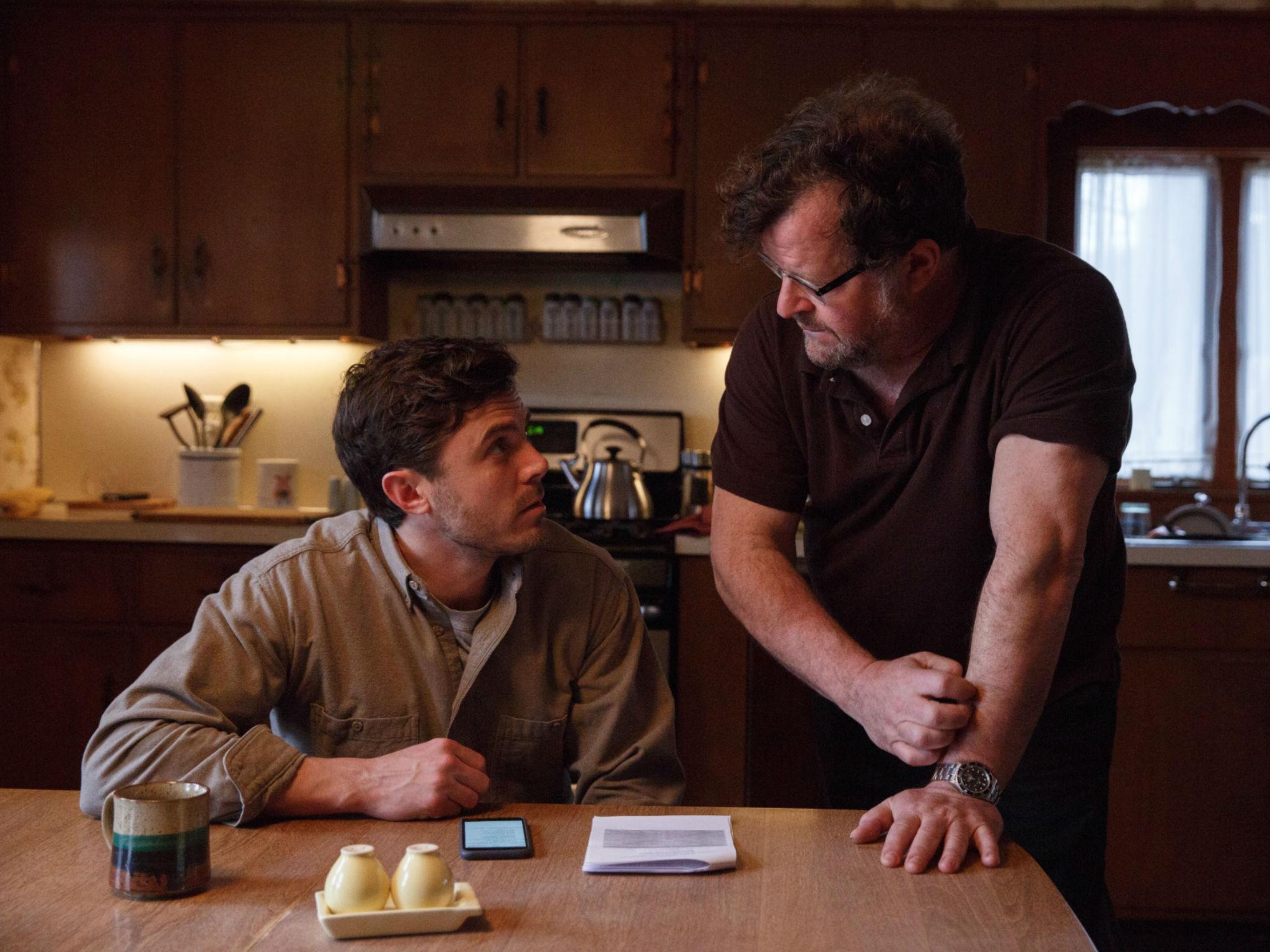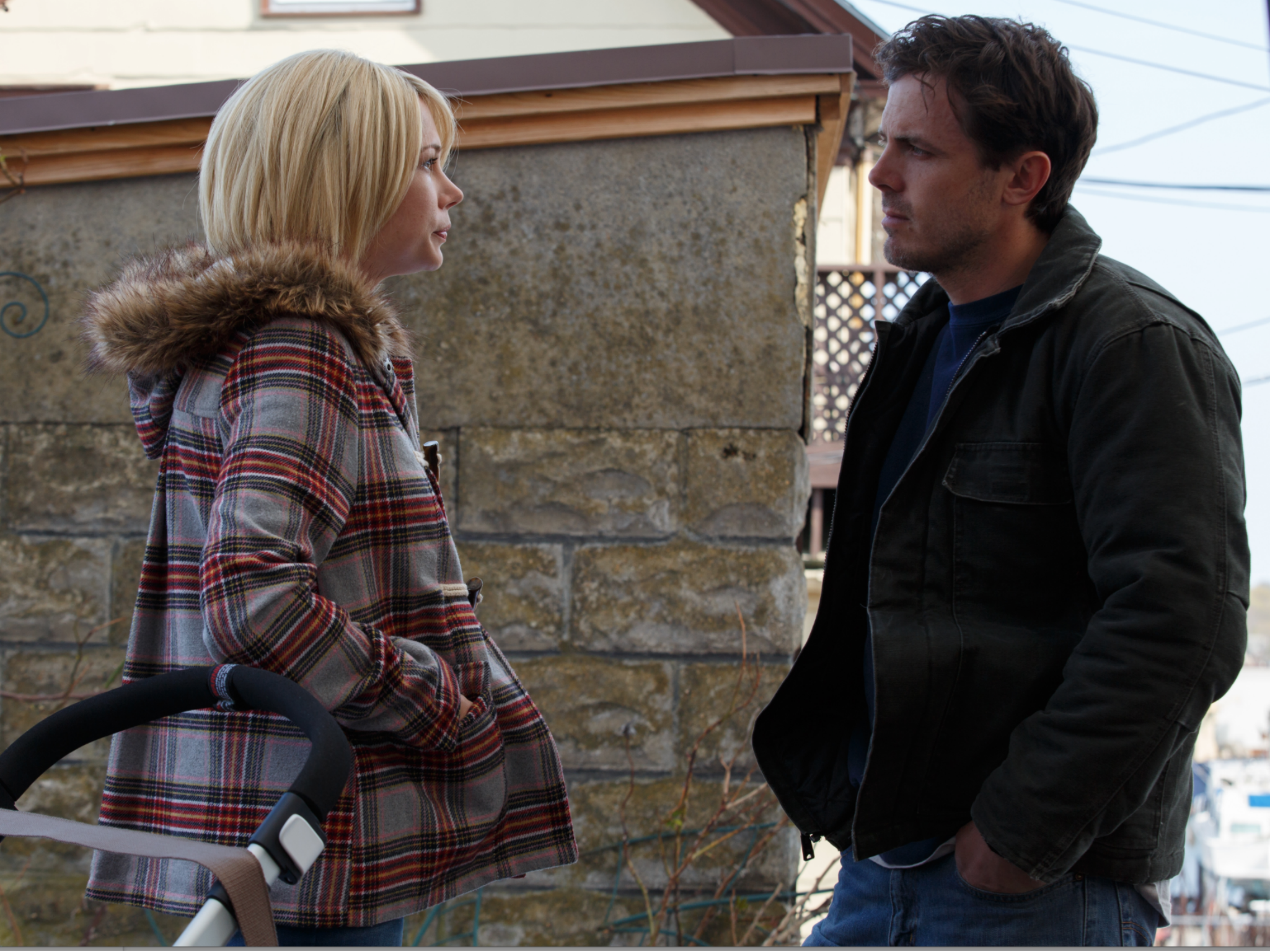Manchester By The Sea's Kenneth Lonergan interview: 'There’s nothing to support the idea that people wouldn’t go and see better movies! Nothing!'
‘Manchester By The Sea’ has already been nominated for five Golden Globes – including Best Director and Screenplay for Lonergan, who says there is a lack of faith in audiences

Kenneth Lonergan is not the sort to look self-satisfied but right now he can afford a little smile. The playwright and occasional screenwriter/director is behind one of the films of the year, Manchester By The Sea, a gut-wrenching drama starring Casey Affleck and Michelle Williams as a couple torn apart by tragedy. It’s already been nominated for five Golden Globes – including Best Director and Screenplay for Lonergan – and a strong showing at this year’s Oscars seems certain.
Just his third film in 16 years, Lonergan is no stranger to the Academy Awards. His directorial debut, You Can Count On Me, a poignant sibling drama with Laura Linney, afforded him an Oscar nod for Best Original Screenplay. He was back two years later for co-writing Martin Scorsese’s Gangs of New York. Is he concerned that all this hype around Manchester By The Sea might damage it? “I don’t know,” he shrugs. “Everybody likes to get prizes. I don’t think it can hurt the film.”
Sitting in London’s Corinthia hotel, this bespectacled 54-year-old New Yorker seems as far removed from Hollywood hoopla as his Massachusetts-set film, with its chilly coastal setting, is from sunny California. “It could be hurt by people not seeing it,” he continues. “I don’t see how it could be hurt by people seeing it. But I suppose any movie can be hurt by people’s expectations being raised too high – but that’s a whole separate category. My job is to make the movie as best I can.”

Unquestionably, he’s managed that. The film started life after Matt Damon – who featured in his last film, Margaret – and John Krasinski came to him with a story outline: a young man from Manchester, Massachusetts, who left the area because of personal tragedy, returns when his brother dies. The original plan was for Damon to direct and star, but when his schedule on The Martian conflicted, Lonergan took over behind-camera duties, casting Casey Affleck as Damon’s character Lee Chandler.
Shifting in time, gradually revealing a tragic past that has left an imprint on Chandler’s present, it’s a remarkable character portrait – you can practically see the emotional scars on Affleck’s face as he becomes, reluctantly, guardian to his teenage nephew. “It became a question of trying to chart how this guy gets through the day after what’s happened to him,” says Lonergan, “how he’s functioning and how he tries to bring that method of coping with the weight that he’s got to carry to helping out his nephew.”
Curiously, Damon and Affleck previously starred with the latter’s wife Summer Phoenix in a production of This Is Our Youth, Lonergan’s breakthrough 1996 play that originally starred Mark Ruffalo, later to appear in You Can Count On Me. If that Reagan-era drama was about the anxiety of adolescence, Manchester By The Sea deals with the complexities of adulthood – from the pain of overcoming grief to the moving on after relationships fissure. It’s the type of adult drama from which Hollywood execs frequently run a mile.
“I don’t see why it’s so rare,” says Lonergan. “I’m very happy with the film, but if we were having this discussion in 1976 instead of 2016, it wouldn’t be that unusual to have people treating the audience with some respect and having characters that are not good or bad and nothing in between. It’s not that unheard of, if you go back a few years. It’s rare – that’s not to puff myself up but it’s unfortunate that there’s such a lack of faith in audiences. Audiences are way quicker than people think.”
Even indie films are suffering – “riddled with these nerves”, as he puts it, where characters have to be likeable. “There’s so much more variety in life than there is in the movies at the moment. Again, there are many fine movies that don’t fall into this category at all. But…it wrecks the bigger movies and it definitely poisons a lot of the smaller ones and I don’t quite know why, because people really seem to enjoy responding to films that are a bit more original.”
Married to actress J Smith-Cameron and father to their daughter Nellie, Lonergan must view the modern-day movie industry with bemusement. A playwright since his student days at NYU, who even saw his 2000 play The Waverley Gallery nominated for a Pulitzer Prize, he’s far more used to the freedom afforded by stage productions. “People write all sorts of things in the theatre. It’s one of these false business economies – there’s nothing to support the idea that people wouldn’t go and see better movies! Nothing!”
Lonergan notably suffered in Hollywood with the “nightmare” of Margaret. Filmed in 2005, starring Anna Paquin as a student involved in a fatal traffic accident, it wasn’t released until 2011 – with Lonergan, the producers and distributor Fox Searchlight unable to agree on a final cut. Lawsuits were filed, time passed and even Scorsese and his editor Thelma Schoonmaker were brought in to produce an edit shorter than Lonergan’s three-hour epic. Eventually, a 149-minute cut was produced “to meet a deadline and a length requirement”.
Interestingly, some critics singled the film out as one of the year’s best. “I’m glad that people like it. I appreciate it and I don’t mean to piss on it, but the version I care about is the extended edition of the film [Lonergan’s three-hour cut, released subsequently on DVD in 2012]. “It exists and it’s there and people have seen it and like it, so it has a life. But I never felt the part where I was considered to be difficult and crazy and obnoxious and obstreperous never really bothered me too much. I was more bothered by the fact that the film was not getting to an audience.”
In the interim, Lonergan produced two other plays – The Starry Messenger and Medieval Play – and returned to the theatre last year with Hold On To Me Darling, the story of a country music superstar, starring Timothy Olyphant. For the moment, he doesn’t know what he’s doing next – stage or screen – although he has completed the scripts for a four-part mini-series adaptation of EM Forster’s Howard’s End, to be directed by Fortitude’s Hettie Macdonald.
It’s not the first time Lonergan has done such a writing gig for another to direct – he even penned the screenplay for the “not so great” animated feature version of Rocky & Bullwinkle starring Robert De Niro. “It’s odd,” he concedes. “In the one sense, it’s less personal to me and in another sense, there’s more of a sense of freedom because I’m writing for someone else.” He brightens up suddenly. “That’s liberating in some ways.”
'Manchester By The Sea' opens on 13 January
Join our commenting forum
Join thought-provoking conversations, follow other Independent readers and see their replies
Comments
Bookmark popover
Removed from bookmarks